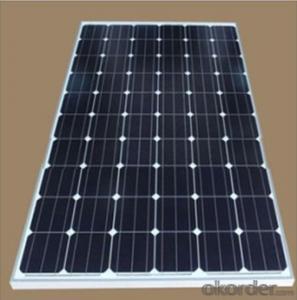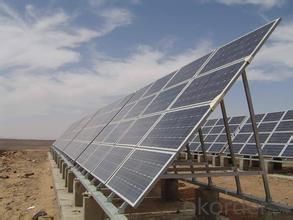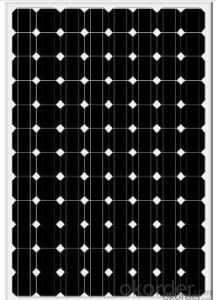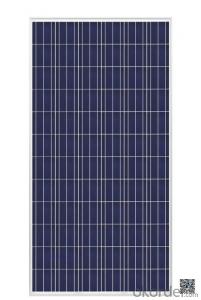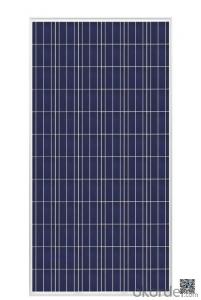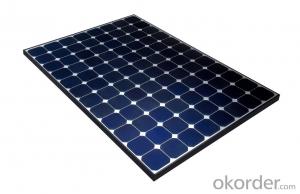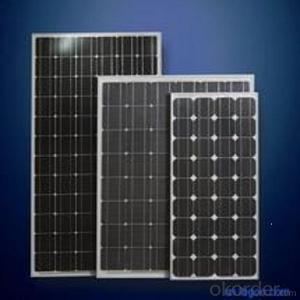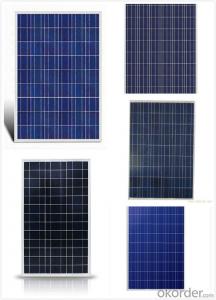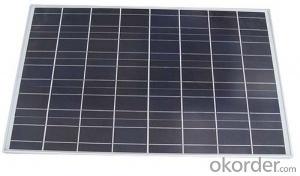Detroit Solar Panels - China Poly Solar Module/Solar Panel for House/Cheap Solar Panels China
- Loading Port:
- Shanghai
- Payment Terms:
- TT OR LC
- Min Order Qty:
- 1000 watt
- Supply Capability:
- 50000 watt/month
OKorder Service Pledge
OKorder Financial Service
You Might Also Like
China Poly Solar Module/Solar Panel for House/ Cheap Solar Panels China
Introduction
this is a kit using for factory and storge field. this product is a higer output version with stable power and we gurantee you for 20years.
suggestied application
home lighting business lighting,
Garden lighting, pavement lighting
Farmer household lighting
Decorative water pump
Traffic signal lighting
industry area
business area
Solar Power Plant, Solar House
Product features
The modules are made of Monocrystalline or Polycrystalline Silicon cell.
Materials and color of the solar panel frame: Clear anodized aluminum alloy type 6063T5 Universal frame; Silver-white color;
The output connection gathers the coupling: Selects conforms to the IEC-612615; 2005, class II, IEC61730 international standard; Airtight waterproofing binding clamp;
Module seal structure: The surface is thick, the high diaphanous rate armored glass with solar cell board special-purpose 3.2mm becomes after the high temperature lamination craft. The back selects has waterproof and anti- aged performance fine TPT materials. The entire block battery board has, the waterproofing, the anti- aging airtight and so on the fine performance;
Power tolerance: +/-3%
The module bears the outside striking potential [V]: 1000V/1min
Working temperature: -40°C~+85°C
Service life [year]: It can be used more than 25 years under the environment of without acid, alkali and so on .
packing
Details: packed in international standard cartons(according to the requirements of customers ) for solar panels
Parameters
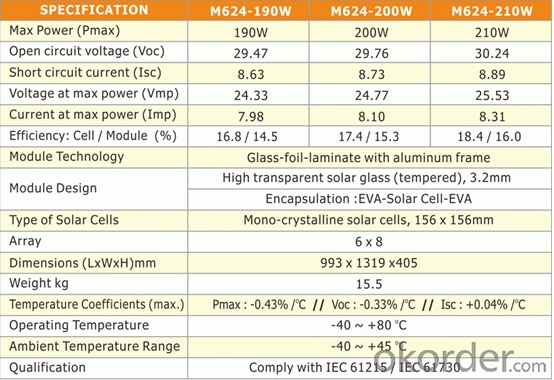
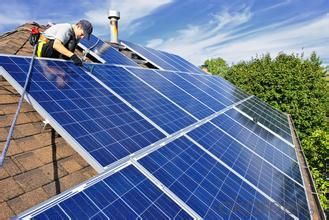
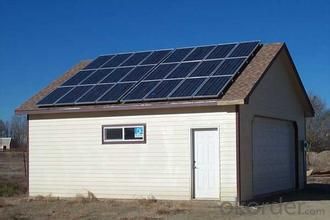
- Q: Solar panels do good more then bad?
- Like any other materials, solar panels need to be manufactured. These components are usually imported, they use energy to produce and transport. However, once you install solar panels, they need little or no maintenance (except cleaning to maintain efficiency) and they use no other resources to produce power. Over their lifespan, they'll produce more energy than was used to be made, so on the whole good for the environment.
- Q: Can solar panels be installed on fences?
- Yes, solar panels can be installed on fences. In fact, installing solar panels on fences is becoming increasingly popular as it maximizes space utilization and allows for efficient energy generation in areas with limited roof space. Additionally, fence-mounted solar panels can provide added privacy and security benefits.
- Q: Can solar panels be installed on commercial buildings?
- Yes, solar panels can be installed on commercial buildings. In fact, many businesses and organizations are increasingly opting for solar panel installations to reduce their energy costs and environmental impact. By harnessing sunlight and converting it into electricity, solar panels provide a sustainable and renewable source of power for commercial operations.
- Q: What is the impact of roof material on solar panels' performance?
- The impact of roof material on solar panels' performance is significant. The type and condition of the roof material can affect the efficiency and effectiveness of solar panels. Certain roof materials, such as metal or asphalt shingles, are more conducive to solar panel installation and can provide a stable and durable surface for the panels. These materials typically allow for better heat dissipation and can withstand the weight of the panels. On the other hand, roofs with clay tiles or slate may require special mounting systems and can be more challenging to install solar panels on. Additionally, a damaged or deteriorating roof can pose a risk to the overall performance and lifespan of the solar panels. Therefore, it is crucial to consider the roof material and its condition when planning for solar panel installation to ensure optimal performance and longevity.
- Q: Do solar panels require direct sunlight to work?
- No, solar panels do not require direct sunlight to work. They can still generate electricity from diffused or indirect sunlight.
- Q: Can solar panels be installed on bridges or highways?
- Yes, solar panels can be installed on bridges or highways. In fact, there are several projects around the world where solar panels have been installed on bridges and highway infrastructure. These installations not only generate clean energy but also utilize underutilized spaces, contributing to sustainable and efficient use of resources.
- Q: Me and my friend have made our own functional solar panels for considerably less than retail prices and we are thinking about selling them. Are there any legal issues regarding this? Would I need any special licenses or anything? Would using brand name components or parts in the panels make any difference legally? I want to know before I just go out and start doing it. Thanks!
- Aren't there any safety or efficiency standards you have to comply with? If I were buying solar panels I'd want to be sure the manufacturer was competent and licensed as a manufacturer/retailer. If someone brought a case against you for something that went wrong, and the brand name components were named as part of the problem, then yes, those brand name companies would certainly think there was a legal complication. Just do your research first. Your local chamber of commerce or university legal department would be able to help you.
- Q: How do solar panels affect the property's overall sustainability?
- Solar panels can greatly enhance a property's overall sustainability by generating clean and renewable energy from the sun. By reducing reliance on fossil fuels and lowering carbon emissions, solar panels contribute to a greener environment. Additionally, solar energy can help reduce electricity bills and provide a reliable and independent source of power, making the property more self-sufficient and resilient.
- Q: The inverter I am using gets the required 2 DC volts from the solar panel, but fo some reason it just won't output the 0 AC voltage. When the inverter is hooked to a car battery, it works just fine off the same 2 DC rating. Help me out please...
- There could be a couple of reasons why it isn't working. First, 2V panels actually put out a considerably higher voltage because it is presumed that they will be used to charge a 2Vdc battery. That requires applying a voltage greater than 2Vdc, and usually there is a solar controller that regulates the solar power to the battery. It also has a voltage drop. Look at the first reference reference, and you will see these values for a particular panel: Voc: 2.6V (open circuit voltage) Vmp: 7.2V (voltage at maximum power point) Voc is the voltage the panel produces under standard sunlight and temperature conditions (25°C), with no load applied. As load is applied, the voltage drops (see reference 2). Power is the product of current times voltage, so at one set of conditions (namely at Vmp) maximum power is available from the panel. Your inverter might not be working for either of two reasons: ) it has input protection circuitry that locks out operation when it senses an overvoltage, as in the 2.6V open circuit voltage, or 2) the panel does not produce enough current and the voltage from the panel collapses under excessive load. For example, if you load your inverter to 20W, then nominally the 2VDC input to the inverter must supply 20W/2V/eff = 0A/eff Assuming the inverter has an efficiency of 80%, the input current required is: 0A/.8 = 2.5A A solar panel operating at maximum power would need a rating of about: 2.5A x 7.2V = 25W Is your panel that big? The other option, as mentioned by others, is to charge a battery that runs the inverter. Other nuances: Voc increases as temperature decreases. Sunlight intensity varies (obviously), so the panel may produce less than rated power. The power specifications often are printed on the back side of the panel.
- Q: What are the different types of solar panels?
- There are primarily three types of solar panels: monocrystalline, polycrystalline, and thin-film solar panels. Monocrystalline panels are made of a single crystal structure, making them highly efficient but also more expensive. Polycrystalline panels are made up of multiple crystals and are slightly less efficient but more affordable. Thin-film panels are the least efficient but are flexible and can be used in a variety of applications.
Send your message to us
Detroit Solar Panels - China Poly Solar Module/Solar Panel for House/Cheap Solar Panels China
- Loading Port:
- Shanghai
- Payment Terms:
- TT OR LC
- Min Order Qty:
- 1000 watt
- Supply Capability:
- 50000 watt/month
OKorder Service Pledge
OKorder Financial Service
Similar products
Hot products
Hot Searches
Related keywords
